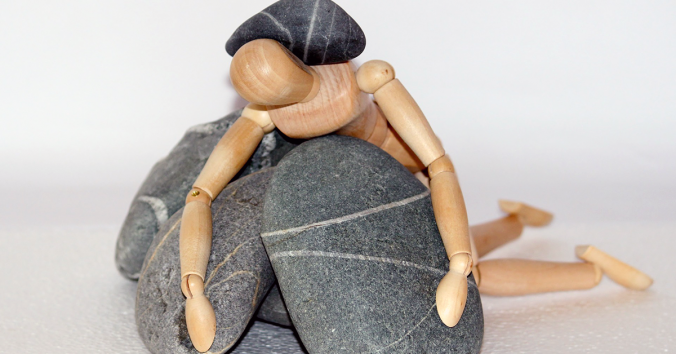What is obvious in principle may turn out to be less obvious in practice. That would be at least one possible interpretation of a new study on ethics in palliative care.
Palliative care is given to patients with life-threatening illnesses that cannot be cured. Although palliative care can sometimes contribute to extending life somewhat, the focus is on preventing and alleviating symptoms in the final stages of life. The patient can also receive support to deal with worries about death, as well as guidance on practical issues regarding finances and relationships with relatives.
As in all care, respect for the patient’s autonomy is central in palliative care. To the extent possible, the patient should be given the opportunity to participate in the medical decision-making and receive information that corresponds to the patient’s knowledge and wishes for information. This means that if a patient does not wish information about their health condition and future prospects, this should also be respected. How do palliative care professionals handle such a situation, where a patient does not want to know?
The question is investigated in an interview study by Joar Björk, who is a clinical ethicist and physician in palliative home care. He conducted six focus group interviews with staff in palliative care in Sweden, a total of 33 participants. Each interview began with an outline of an ethically challenging patient case. A man with disseminated prostate cancer is treated by a palliative care team. He has previously reiterated that it is important for him to gain complete knowledge of the illness and how his death may look. Because the team had to deal with many physical symptoms, they have not yet had time to answer his questions. When they finally get time to talk to him, he suddenly says that he does not want more information and that the issue should not be raised again. He gives no reason for his changed position, but nothing else seems to have changed and he seems to be in his right mind.
What did the interviewees say about the made-up case? The initial reaction was that it goes without saying that the patient has the right not to be informed. If a patient does not want information, then you must not impose the information on him, but must “meet the patient where he is.” But the interviewees still began to wonder about the context. Why did the man suddenly change his mind? Although the case description states that the man is competent to make decisions, this began to be doubted. Or could someone close to him have influenced him? What at first seemed obvious later appeared to be problematic.
The interviewees emphasized that in a case like this one must dig deeper and investigate whether it is really true that the patient does not want to be informed. Maybe he said that he does not want to know to appear brave, or to protect loved ones from disappointing information? Preferences can also change over time. Suddenly you do not want what you just wanted, or thought you wanted. Palliative care is a process, it was emphasized in the interviews. Thanks to the fact that the care team has continuous contact with the patient, it was felt that one could carefully probe what he really wants at regular intervals.
Other values were also at stake for the interviewees, which could further contribute to undermining what at first seemed obvious. For example, that the patient has the right to a dignified, peaceful and good death. If he is uninformed that he has a very short time left to live, he cannot prepare for death, say goodbye to loved ones, or finish certain practical tasks. It may also be more difficult to plan and provide good care to an uninformed patient, and it may feel dishonest to know something important but not tell the person concerned. The interviewees also considered the consequences for relatives of the patient’s reluctance to be informed.
The main result of the study is that the care teams found it difficult to handle a situation where a patient suddenly changes his mind and does not want to be informed. Should they not have experienced these difficulties? Should they accept what at first seemed self-evident in principle, namely that the patient has the right not to know? The interviewees themselves emphasized that care is a process, a gradually unfolding relationship, and that it is important to be flexible and continuously probe the changing will of the patient. Perhaps, after all, it is not so difficult to deal with the case in practice, even if it is not as simple as it first appeared?
The interviewees seemed unhappy about the patient’s decision, but at the same time seemed to feel that there were ways forward and that time worked in their favor. In the end, the patient probably wants to know, after all, they seemed to think. Should they not have had such an attitude towards the patient’s decision?
Read the author’s interesting discussion of the study results here: “It is very hard to just accept this” – a qualitative study of palliative care teams’ ethical reasoning when patients do not want information.

Written by…
Pär Segerdahl, Associate Professor at the Centre for Research Ethics & Bioethics and editor of the Ethics Blog.
Björk, J. “It is very hard to just accept this” – a qualitative study of palliative care teams’ ethical reasoning when patients do not want information. BMC Palliative Care 23, 91 (2024). https://doi.org/10.1186/s12904-024-01412-8
We like real-life ethics





Recent Comments